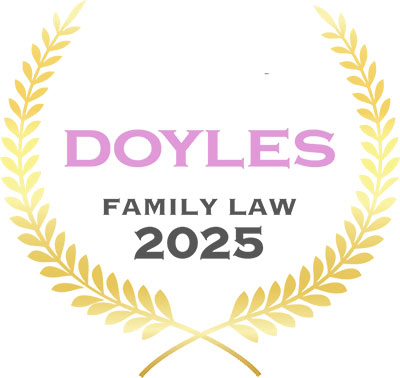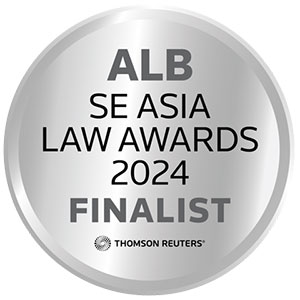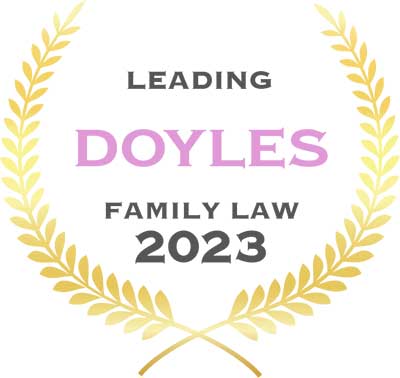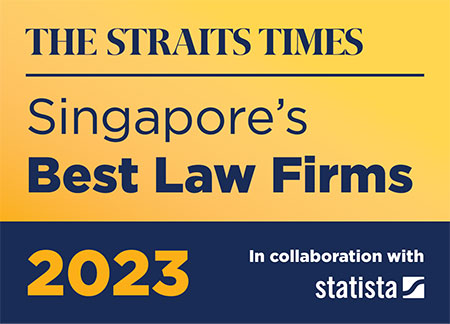Child Custody Lawyers
Custody, Care & Control, and Access in Singapore
When parents file for divorce in Singapore, the Family Justice Courts issue orders to protect and safeguard the children’s welfare. These orders cover 3 key areas:
- Custody – who makes the major, long-term decisions (education, healthcare, religion, major travel).
- Care & Control – who the child lives with day-to-day and who makes routine, daily decisions.
- Access – the time and arrangements the non-residential parent has with the child.
Below is a clear, up-to-date guide to how Singapore courts approach these issues, what orders are common, and how you can prepare a strong, child-centred case.
The Paramount Principle
Under Singapore law, the child’s welfare is paramount. The court will choose the arrangement that best serves the child’s overall well-being – not either parent’s preferences. In practice, the court:
- Promotes ongoing, meaningful relationships with both parents (where safe).
- Encourages low-conflict, child-focused co-parenting.
- Looks at facts, not labels: each family’s history, caregiving pattern, and the child’s needs.
Custody Orders
What “custody” covers: big-ticket decisions – school placement, serious medical treatment, religious upbringing, and relocation.
Common orders
- Joint Custody (the norm): Parents must consult and agree on major decisions. This recognises that children generally benefit from two involved parents.
- Sole Custody (exceptional): Ordered where cooperation is unworkable or there are safety concerns (e.g., family violence, severe alienation, entrenched non-communication).
Note: Joint custody does not decide where the child lives. That’s “care & control”.
Care & Control
What it means: who the child lives with on a daily basis; this parent handles routine matters (bedtime, meals, homework, daily medical decisions).
Typical outcomes
- Sole Care & Control to one parent with liberal access to the other.
- Shared Care & Control (near-equal time) is rare and granted only when parents live close by, communicate well, and have shown a stable shared-care pattern.
Young children: Courts often maintain continuity of primary caregiving – who has provided the bulk of day-to-day care – unless there are compelling reasons to change.
Access
The court tailors access to the child’s age, school schedule, and the parents’ work patterns. Arrangements can include:
- Weekend/weekday access (e.g., alternate weekends; mid-week dinner).
- School holidays & public holidays (alternating or shared).
- Overnights (age- and needs-dependent).
- Video/phone contact (set times or reasonable).
- Supervised access (at a neutral venue) where safety or re-bonding is a concern.
- Supervised exchange/hand-overs to minimise conflict during pickups/drop-offs.
If cooperation is fragile, the court may order clear timetables, neutral venues, or third-party supervision (e.g., through community agencies) to stabilise access.
Parenting Plans (Required)
Where there is a child under 21, the court requires a Parenting Plan to be filed:
- Agreed Parenting Plan (uncontested cases) or Proposed Parenting Plan (contested).
- Covers: custody model, living arrangements, detailed access schedules, communication protocols, travel consent, schooling decisions, and dispute-resolution steps.
A precise plan reduces future conflicts and helps the court adopt workable, child-friendly orders.
Mandatory Co-Parenting Programme (CPP)
If you have a child under 21 and intend to file for divorce, both parents must complete the Co-Parenting Programme (CPP) before filing. Certificates of Completion are filed with the court. The CPP supports parents to:
- Understand divorce’s impact on children.
- Build practical co-parenting skills.
- Plan child-centred arrangements that reduce conflict.
(Separate programmes and services are available via MSF’s FAM@FSC network for counselling, supervised access, and hand-over support.)
Relocation and Travel
- Relocation (moving the child overseas): You must obtain the other parent’s written consent or leave of court. The court considers reasons for the move, the child’s ties in Singapore, schooling, and whether a realistic contact plan with the left-behind parent exists.
- Short-term travel: Many orders require advance notice and consent (or, failing agreement, an application to court). Provide itineraries and contact details.
Removing a child from Singapore without consent or court permission risks breaches of court orders and may trigger urgent applications.
Evidence the Court Looks For
- Caregiving history: who managed daily routines, clinics, school matters.
- Child’s needs: health, temperament, schooling, special needs, sibling bonds.
- Parental conduct: capacity to place the child first; willingness to support the child’s relationship with the other parent; any family violence.
- Practicality: work hours, proximity to school, home environment, support network.
- Child’s views: considered in an age-appropriate way; may be surfaced via a Child Representative or child-inclusive processes.
Enforcing and Varying Orders
- Enforcement tools
- Make-up access orders.
- Detailed directions to cure breaches (handover windows, neutral venues).
- Penal notice / contempt proceedings in serious or repeated non-compliance.
- Parenting Coordination to manage transitions in high-conflict cases.
Variation
Orders can be varied if there is a material change in circumstances (e.g., relocation, new schooling needs, persistent access breaches, or a meaningful shift in the child’s best interests).
Practical Tips to Strengthen Your Case
- Keep a calm, child-focused tone in messages; avoid accusations.
- Propose realistic, detailed schedules (term time, holidays, exams).
- Offer video calls and flexible contact around school events.
- Document caregiving involvement (school emails, clinic visits, teacher meetings).
- Protect the child from conflict – no coaching, no adult topics, no disparagement.
Courts look for parents who demonstrate cooperation and reliability.
How PKWA Law Can Help
- Strategy from day one: We map the likely outcomes against your facts and propose a child-centred plan the court can accept.
- Strong, clear Parenting Plans: Practical schedules, travel protocols, and dispute-resolution pathways that prevent future flashpoints.
- Negotiation & Mediation first: We resolve most cases without trial, reducing stress and cost while preserving co-parenting relationships.
- Court advocacy when needed: Decisive representation in applications on custody, care & control, access, relocation, and enforcement.
- Recognised expertise: PKWA’s family team is consistently ranked by The Straits Times, Doyles Guide, and Benchmark Litigation.
Speak to a PKWA Family Lawyer
Contact PKWA Law for a confidential consultation. We’ll assess your situation, explain likely outcomes, and help you secure a safe, stable, and child-centred arrangement.

Written by the PKWA Law divorce team and available at Kinokuniya, Popular, and Amazon.
PKWA in the Media
View moreFixed, Clear & Transparent Fees
Pricing varies
Please get in touch with us for an assessment.
Call us
Whatsapp us
Why Clients Choose PKWA Law
PKWA Law is an established law firm with over 30 years of history, and a team of more than 100 legal and support professionals.
Our fees are fixed, clear and transparent, so you can have certainty and peace of mind.
Over 3,800 Google Reviews (4.9 Stars) across pkwalaw.com and on our family law resource portal, singaporefamilylawyers.com.sg
Our lawyers are recognised as leading family lawyers by The Straits Times, the Law Society, Asian Legal Business, and other respected organisations and publications.
Landmark Court of Appeal and High Court Wins.
Featured news
Award winning Law Firm
PKWA Law recognised for sixth year running in the Straits Times “Singapore’s Best Law Firms” 2026 list
Frequently asked questions
How are children’s custody and care decided in a divorce?
How does the Singapore court decide custody, care & control?
Can custody or access orders be changed after divorce?
What is the difference between custody and care & control in Singapore?
Can a parent be denied access to a child in Singapore?
What is access in Singapore divorce cases?
Our Legal Team

Dorothy Tan
Co-Head, Family Law

Low Jin Liang
Co-Head, Family Law

Charlene Nah
Associate Director, Family Law

Derek Choo Heng Han
Associate Director, Family Law

Mathea Lim
Associate Director, Family Law

Rebecca Yeo
Associate Director, Family Law & General Litigation
Client testimonials
Our awards and accolades













